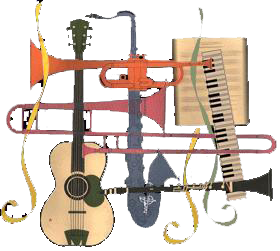Nostalgia For The Jungle
By Thế Lữ
(English translation by Hien V. Ho)
To Nhất Linh Nguyễn Tường Tam
(Words of a zoo tiger)
Gnawing away my hatred in this iron cage,
Lying low, watching days and months pass by,
I despise these insolent stupefied humans
Their small eyes staring, mocking the jungle’s pride.
Now, in my fall, humiliated and confined
Just a freak show, a simple toy,
Sharing the same pack with silly bears
And the next cage’s pair of carefree leopards.
I live forever in longings and nostalgia
Of the old days when I roved almighty.
I miss the mountains and forests with their immense shade and ancient trees,
With winds howling in the forests, with torrents shrieking through the mountains,
While roaring my formidable epic song,
I walked with dignity, I commanded respect
My body undulating like harmonious waves
Frolicking in the secretive shades of spiny leaves and cutting grasses.
In my dark cave, once I glowered my supernatural eyes
Immediately all other beings fell silent,
Because I knew I was the supreme ruler of all kinds
Among the trees and flowers without a name and age.
Gone are the golden nights by the spring
High with my prey, I drank the scattered moonlight.
Where are these days when rain erupted all sides
When I quietly watched my realm renew its life?
Where are the dawns with greenery awash in sunlight
Jubilant birds songs awaking me from my sleep,
The afternoons when the jungle was all gory
While I waited for the blazing sun to die
And these secret domains to become mine?
Alas! Where are all those moments of glory!
Now my resentment will last a thousand autumns,
And I hate these surroundings that will never change,
In these vulgar landscapes, fake and arranged,
Maintained flowers, planted trees, trimmed lawns, even paths,
Black water that doesn’t even flow, acting like a spring,
Creeping beneath tiny mounds,
Some little benign foliage without mystery
Trying to assume wilderness and immensity
Of places millennial, majestic and obscure.
O majestic landscapes of water and mountains
Where sacred tigers reigned,
Where unrestrained I roved in the old days,
Places that never I will see again!
Do you know there are days disillusioned
I follow my grand dreams of the jungle
To let my soul fly over close to you?
Oh my awesome jungle landscapes, I miss you so!
Translated by Hien V. Ho
March 11, 2009
Nhớ Rừng
Tặng Nguyễn-Tường-Tam
(Lời con Hổ ở vườn Bách thú)
Gậm một khối căm hờn trong cũi sắt,
Ta nằm dài, trông ngày tháng dần qua.
Khinh lũ người kia ngạo mạn, ngẩn ngơ,
Giương mắt bé riễu oai linh rừng thẳm
Nay sa cơ, bị nhục nhằn tù hãm
Để làm trò lạ mắt, thứ đồ chơi.
Chịu ngang bầy cùng bọn gấu dở hơi,
Với cặp báo chuồng bên vô tư lự.
Ta sống mãi trong tình thương nỗi nhớ,
Thủa tung hoành, hống hách những ngày xưa.
Nhớ cảnh sơn lâm, bóng cả, cây già,
Với tiếng gió gào ngàn, với giọng nguồn hét núi,
Với khi thét khúc trường ca dữ dội
Ta bước chân lên, dõng dạc, đường hoàng,
Lượn tấm thân như sóng cuộn nhịp nhàng,
Vờn bóng âm-thầm, lá gai, cỏ sắc.
Trong hang tối, mắt thần khi đã quắc
Là khiến cho mọi vật đều im hơi.
Ta biết ta chúa tể của muôn loài
Giữa chốn thảo hoa, không tên không tuổi.
Nào đâu những đêm vàng bên bờ suối,
Ta say mồi đứng uống ánh trăng tan?
Đâu những ngày mưa chuyển bốn phương ngàn
Ta lặng ngắm giang-san ta đổi mới?
Đâu những bình minh cây xanh nắng gội
Tiếng chim ca giấc ngủ ta tưng bừng?
Đâu những chiều lênh láng máu sau rừng
Ta đợi chết mảnh mặt trời gay gắt
Để ta chiếm lấy riêng phần bí mật?
-- Than ôi! thời oanh liệt nay còn đâu?
Nay ta ôm niềm uất hận ngàn thâu
Ghét những cảnh không đời nào thay đổi,
Những cảnh sửa sang, tầm thường, giả dối:
Hoa chăm, cỏ sén, lối phẳng, cây trồng;
Giải nước đen giả suối, chẳng thông dòng
Len dưới nách những mô gò thấp kém;
Dăm vừng lá hiền lành không bí hiểm
Cũng học đòi bắt chước vẻ hoang vu
Của chốn ngàn năm cao cả, âm u.
Hỡi oai linh, cảnh nước non hùng vĩ!
Là nơi giống hùm thiêng ta ngự trị,
Nơi thênh thang ta vùng vẫy ngày xưa
Nơi ta không còn được thấy bao giờ!
Có biết chăng trong những ngày ngao ngán
Ta đang theo giấc mộng ngàn to lớn
Để hồn ta phảng phất được gần ngươi
-- Hỡi cảnh rừng ghê gớm của ta ơi!
Thế Lữ
[1936]
Thế Lữ (1907-1989)
Thế Lữ is the pen name of Vietnamese poet, novelist, playwright and stage director Nguyễn Thứ Lễ (1). Born in 1907 in Vietnam, when the country was still under French colonial rule, he finished colonial middle school (thành chung), a significant achievement at that period, and studied at the Indochina College of Fine Arts in Hanoi. He left it soon afterwards to start his writing career (2). He was one of the founders of the illustrious literary group Tự Lực Văn Đoàn (3) and also wrote for the magazines Phong Hoá, Ngày Nay, Tinh Hoa.
1) His poetry works include:
Mấy vần thơ (1935) [A few verses]
Mấy vần thơ, tập mới (Đời nay, Hà Nội, 1941)[A few verses, new tome]
2) His detective and mystery novels:
Vàng và máu (1934) [Gold and Blood]
Bên đường thiên lôi (1936) [On the Devil’s Road]
Lê Phong phóng viên (1937) [Reporter Le Phong]
Mai Hương và Lê Phong (1937) [Mai Huong and Le Phong]
Đòn hẹn (1939) [Appointment to a Blow]
Gói thuốc lá (1940) [The Cigarette Pack]
Gió trăng ngàn (1941) [Wind and Moon in the Forest]
Trại Bồ Tùng Linh (1941) [Bo Tung Linh Camp]
In 1945, The Lu joined the Viet Minh resistance movement against the French. After this period and particularly after 1954, socialist realism was the only doctrine officially accepted in literature and arts in communist North Vietnam. Romantic literature, poetry and music were severely censored. However,he was a prominent member of government sponsored associations of writers and artists. He died in Saigon on 6-03-1989 (Wikipedia).
Thế Lữ is widely recognized as one of the major pioneers of the movement called “New Poetry” of the 1930’s. Literary critics Hoài Thanh and Hoài Chân wrote in 1942 “Regarding the new form [of poetry], Thế Lữ’s poetry is not timid at all, it is new in its number of verses, number of words, its rhymes, its sound cadence”(4).
In 1965, Trần Tuấn Kiệt, a South Vietnamese literary critic, wrote “Now, Thế Lữ is living in the North. Literature over there is realist literature, in the same direction with socialism. We are in the domain of poetry, and poetry is different from propaganda, from political theories. We are not talking about Thế Lữ of today, but only to reminisce about Thế Lữ of a remote past: Thế Lữ of romantic poetry and as a poet who contributed to the prewar New Poetry movement”(4).
This poem about a tiger in a zoo is a classic among Vietnamese who grew up in South Vietnam between 1954 (the year the country was divided in two different states, the Republic of Vietnam south of the 17th parallel under Ngo Dinh Diem and the Democratic Republic of Vietnam under Ho Chi Minh in the North ) and 1975, when the communists took over South Vietnam. School students had to know its first part by heart, and most educated South Vietnamese are still able to recite a few of its verses. When it was published in 1936, the second half of the poem, where the tiger expresses it “thousand autumns” resentment against people who hold it in a life of confinement, was censored by the French colonial administration. Most likely, the tiger was viewed as a transparent allegory of Vietnam and the well maintained but vulgar and fake environment of the zoo represented the self proclaimed “civilized” colonial society to which millennial Vietnam was forced to adapt. The poem was dedicated to Nguyễn Tường Tam (1905-1963), who was a famous writer (under pen name Nhất Linh), co-founder of Tự Lực Văn Đoàn, and a nationalist revolutionary who was fighting for Vietnam’s independence.
About this poem ‘Nostalgia of the Jungle’, Hoài Thanh and Hoài Chân wrote:
“Let’s read the following verses:
I miss the mountains and forests with their immense shade and ancient trees,
With winds howling in the forests, with torrents shrieking through the mountains,
While roaring my formidable epic song,
I walked with dignity, I commanded respect
My body undulating like harmonious waves
Frolicking in the secretive shades of spiny leaves and cutting grasses.
Reading these verses, nobody can pout his lips and question the revolution in poetry that is rising. Even Thế Lữ’s [traditional] poems of seven words, five words, [alternating] six and five words [per verse] are completely different from before. Thế Lữ cracked a framework that had not changed for a thousand years. His use of words is very bold. As we read some of his poems, in particular “Nostalgia of the Jungle”, we get the impression of being moved, tormented by an extraordinary force. Thế Lữ acts like a general who commands the Vietnamese language with irrefutable orders.”
Hien V. Ho, MD
[Bs Hồ Văn Hiền]
Edited for Lang Hue (7-18-2013)
Notes:
1) nói lái: “speak-back” form of slang or word play. Here the vowel ‘ê’ of the second word Lễ is switched to follow the consonants Th of the first word Thứ to make ‘Thế’, and vowel ‘ư’ of the first word goes after the consonant L of the second word Lễ to make ‘Lữ’.
2) Hoài Thanh-Hoài Chân, in Thi Nhân Việt nam,1942
3) Tự lực văn đoàn: Literally “Self Reliance Literary Group”, formed in 1933, with the following devices: “Always modern, youth oriented, life loving, striving and believing in progress. To follow Populism, avoid bourgeois or aristocratic inclinations. To respect individual liberties. To make people know that Confucianism has become obsolete. To apply Western methods into Vietnamese literature.”
4) See note 1
5) Trần Tuấn Kiệt, Thi Ca Hiện Đại (1880-1965), Sống Mới, 1975, p.75















